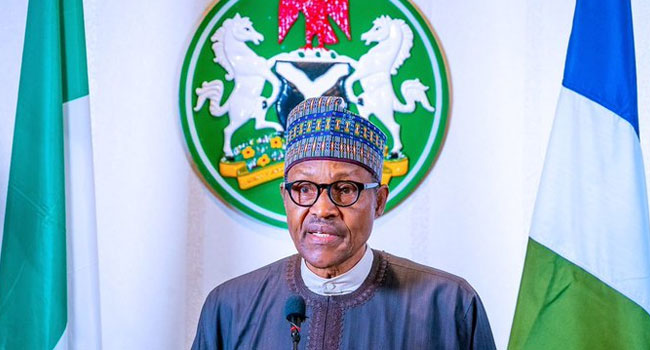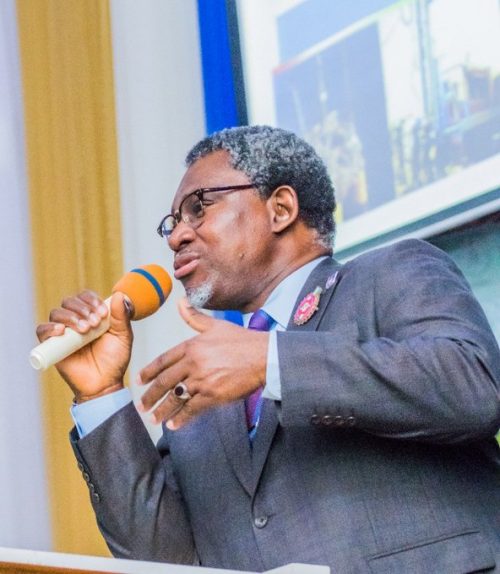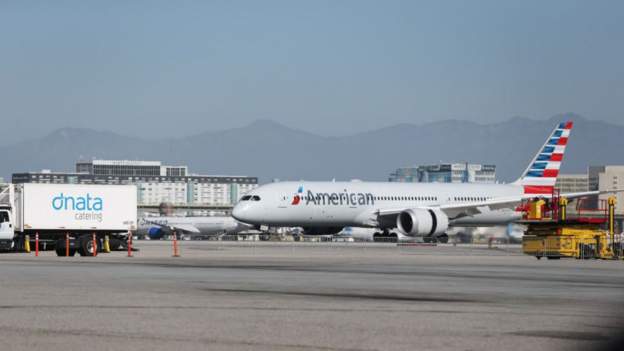Sunday May 24th was the 54th Anniversary of the Promulgation of decree number 34 by Major General Johnson Thomas Umanakwe Aguiyi Ironsi (3rd March 1924- 29th July 1966). Few people remembered. It was the decree that transferred all the autonomous power of the four regions then to the centre. The regions then were Northern Region, Eastern Region, Western Region and Mid-Western Region. Decree 34 came into force on 24th May, 1966. Under it Nigeria formally ceased to be a Federation and was renamed the ‘Republic of Nigeria’, the Federal Executive Council became the ‘National Military Government’, the Federal Executive Council became simply the ‘Executive Council’ and Lagos the ‘capital territory’. The Regions were formally abolished, but the Provinces (the next largest administrative division below the Regions) were grouped into ‘the Northern Group of Provinces’, the ‘Eastern Group of Provinces’, etc. These Groups corresponded exactly with the previous Regions and the four Military Governors continued in office administering the same area as before. The Military Governors however lost the power to incur expenditure on their own responsibility without prior consent. The federal and regional public services were unified into a single ‘National Public Service’. Control over the most senior posts was centralized. The power to appoint and dismiss ‘ persons to hold or act in the office of permanent secretary to any department of government of the Republic or any other office of equivalent rank in the National Public Service’ was vested in the Supreme Military Council. The National Public Service Commission was to be consulted before any such appointments were made. The power to appoint, promote, dismiss, and discipline in relation to all other administrative posts was vested in the National Public Service Commission. This power was delegated except for the most senior posts to Provincial Public Service Commissions. The power to appoint the members of the Police Service Commission was vested in the Head of the National Military Government (under Decree No. 1 it had been in the Federal Executive Council).
There was this fear among Northern elites especially among those of them in the civil service at that time that a unitary system of government will lead to the domination of the Federal Public Service by the Easterners. The fear was grounded on the assumption among the Northern elites that under Decree No. 34, they will lose out and that the Easterners will exploit, dominate and control the entire public service. Ironically, the reverse is the case in today’s Nigeria. Decree No. 34 was the albatross of General Ironsi. And that was one of the reasons why he was killed.
To further cement the mighty powers in the centre the military in 1978 and 1999 established those powers in the exclusive legislative list in the constitution. Today no doubt those powers have been abused, hence the urgent demand for restructuring. If not for the obloquy or rather the scurrility of the mighty power in the centre under the guise of this is our turn syndrome, there would not have been a demand for restructuring.
If we talk about restructuring today, it was caused by decree 34 and its exploitation. Restructuring is a protest demand on the mighty power of the central government and its exploitation. Restructuring is a legitimate protest of the inequality that exists in today’s Nigeria. Every Head of State or President or even the Head of Interim Government that have headed the central government since 1966 have failed to return the power back to the regions. If not for decree 34 maybe and just maybe we could have been in the same shoes like Switzerland, Belgium, Serbia or Netherlands whose regions or groupings are sovereign. To add more to the mighty power of the central government, General Yakubu Gowon in 1970 promulgated decree No. 13 with the effect of shifting the bulk of the federally collected revenues to the Federal Government. Thus, the States got only 60 per cent instead of 100 per cent of export duty revenue, 50 per cent instead of 100 per cent of duty on motor fuel, and 50 per cent of exercise duty revenues. The balances went to the Federal Government, which also got 5 per cent of mining rents and royalties taken out of the 50 per cent that went to the States by derivation.
For the shares among the States, this Decree explicitly adopted a two-factor formula giving equal weight to the principles of population and equality of States. Whether the States were satisfied or not could not readily be identified in view of the command structure of the Military Government. In 1971 the same General Yakubu Gowon promulgated decree No. 9 which gave total revenue to the offshore oil production to the central government. The present might of the Central Government has its root to decree No. 34 of General Aguiyi Ironsi.
When General Ironsi promulgated the decree he also banned the eighty-two political parties that existed before the coup of January 16, 1966. The parties were NCNC, Action Group, Afenmai Peoples’ Congress, Awo National Brigade, Bornu Youth Movement, Calabar Emancipation League, Calabar, Ogoja, River State Movement, Common Peoples Party of Nigeria, Communist Party of Nigeria, Democratic Party of Nigeria, Dynamic Party, Eastern Nigeria Liberation Movement, Eastern Peoples’ Congress, Ghana-Nigerian Socialist Group, Habe Peoples’ Party, Ibadan Crusaders of Freedom, Ijumu Progressive Union, Kalabari Peoples’ Congress, Kano Peoples’ Party, Kano State Movement, Lagos Citizens Rights Protection Council, Lagos and Colony Peoples’ Congress, Lagos Separate State Movement, League of Northern Yorubas, Mabolaje Party, Middle Belt Congress of Nigeria, Middle Belt Peoples’ Party, Mid-West Democratic Front, Mid-West Youth Association, Moslem Peoples’ Party, Movement for Colonial Freedom, Muslim United Party, National Convention of Nigeria Citizens, National Emancipation League, National Youth Council of Nigeria, National Youth Front, Niger Delta Congress, Niger Delta Volunteer Service, Nigerian Communist Party, Nigerian Council for Peace, Nigerian Labour Party, Nigerian Marxist Group in Germany (GDR), Nigerian National Alliance, Nigerian National Democratic Party, Nigerian National Youth Brigade, Nigerian Peoples’ Party- The New Nigeria, Nigerian Socialist Group, Nigerian Workers Liberation Movement, Nigerian Youth Congress, Northern Elements Freedom Organisations, Northern Elements Progressive Union, Northern Elements Women’s Association, Northern Opposition United Party, Northern Peoples’ Congress, Northern Peoples’ Congress Youth Association, Northern Progressive Front, Northern United Party, Northern Youth Movement, Okpara Youth Brigade, Oshun United Party, Oyo United Party, Peoples’s Party, Peoples Progressive Front, Republican Party, Rivers State Movement, Socialist Labour Party, Socialist Movement of Nigeria, Socialist Party of Nigeria, Socialist Workers and Farmers Party, Socialist Youths of Nigeria, Tarka Youth Pioneers, Tiv State Party, United Action Committee, United Middle Belt Congress, United National Independence Party, United Progressive Grand Alliance Youth Front, United Peoples’ Party, United Progressive Grand Alliance, United Working Peoples’ Party of Nigeria, Zikist Movement and Zikist National Vanguard.
In the decree, General Ironsi also banned the following tribal and cultural associations. They were Bornu State Union, Egbe Atunlase Ibadan, Egbe Igbomina Parapo, Egbe Omo Oduduwa, Egbe Omo Olofin, Egbe Omo Yoruba, Egbe Yoruba Parapo, Ekiti Northern, Ibadan Parapo, Ibibio State Union, Ibo State Union or Ibo Union, Ibo Youth Congress, Ibo Youth League, Idoma Tribal Union, Igbira Tribal Union I and II, Ijaw Progressive Union, Kajola Society, Lagos Aborigines Society, Oganiru Society, Okaa Society, Oshun Parapo, Otuedo, Oyo Parapo and Yoruba State Union.
When General Ironsi promulgated the decree, he had the backing of some key people. Thus Peter Pan (Peter Enahoro) produced a series of articles in the Daily Times exhorting General Ironsi to push forward without fear, ending with the call ‘to the battlements, my General’— a rendezvous with death.
On May 26, 1967, the Military Governor of the then Eastern Region, Lt-Colonel Odumegwu Ojukwu, addressed the joint meeting of the advisory committee of Chiefs and Elders and the consultative assembly of the Eastern Region in Enugu. He declared on that day “the ill-fated Decree No. 34 was promulgated after it had been discussed and approved by General Aguiyi-Ironsi’s Supreme Military Council which composed as follows: Lt-Col Hassan, Lt-Col Gowon, Lt-Col C. Odumegwu Ojukwu, Lt-Col G.T. Kurabo, Lt-Col F.A. Fajuyi, Commodore J. Wey, Brigadier B.O. Ogundipe, Lt-Col D. Ejoor, Alhaji Kam Salem, Mr. L.E. Edet and Major M. Johnson.”
In his observation then, Mr S.K. Panter-Brick, a notable British Historian of the London School of Economics, wrote that “General Ironsi’s assurance that the constitutional review committee was hard at work and that the unification accomplished by Decree No.34 in no way prejudiced its findings was, in the circumstances, no assurance at all. It would be difficult to organize any expression of opinion while such ban remained in force. It was, however, the ‘unification decree’, and that part of it which related to the civil service, which caused most immediate concern. Northern civil servants had already shown their anxieties in this score two months earlier when Lt-Colonel Hassan Katsina, in Lagos for a meeting of the Supreme Military Council, was reported to have ‘condemned’ the policy of Northernisation’ in the making of appointments. On his return to Kaduna he was besieged with demands for an explanation. It was feared that in a unified service Northerners would be at a disadvantage. It was no consolation that the Decree provided for the delegation of appointments and promotions, except the most senior, to Provincial Civil Service Commissions. It was the senior officials who controlled the administration. Moreover there was no assurance as to the qualifications which were to be taken into consideration when making appointments and promotions. If only formal educational qualifications were to be taken into consideration, to the exclusion of experience, local knowledge, and character, then it was feared that the majority of the senior positions would be filled by the southerners, unversed in and unsympathetic to the ways of those they were administering. These fears may have been exaggerated but they were real. They were accentuated by the knowledge that Mr. Nwokedi had made his report on the unification of the civil service to General Ironsi without having had it approved by the other members of the committee. This manner of proceeding was taken as a demonstration of the scant attention likely to be given to the claims of Northerners when it came to making appointments.” He went further to state that “Yet the fact that General Ironsi was caught in this kind of dilemma merely underlines the folly of centralizing the administration in advance of some agreement on the prior constitutional issues. This was compounded when he sought to overcome opposition by announcing his intention to stay in power for three years and at the same time prohibit all political activities. There was no lack of warning of the probable consequences. Lt-Colonel Hassan Katsina, returning from the meeting of the Supreme Military Council immediately preceding the promulgation of Decrees Nos. 33 and 34, remarked that the egg was about to break. It cracked and then finally broke, under the impact of two opposing forces: a Military Government set on imposing its own form of centralized command, at least as an interim measure, and an opposition movement, less clearly led openly asserted, but sustained by growing feats of a fait accompli .”
A few months before promulgating decree 34, General Ironsi on February 21, 1966, he addressed the press. On that day he declared “the public would like to know the kind of administrative reforms we intend to undertake and then we propose to establish in order to attain our objectives. As a first step, administrative reforms are essential in order to lay a solid foundation not only for the present but for the future as well. Here the Press should reflect the thinking of the people and provide a forum for public discussion and constructive suggestions. The country needs a sort of nerve centre which will give the necessary direction and control in all major areas of national activities so that we will be in a position to plot a uniform pattern of development for the whole country. Matters which were formerly within the legislative competence of the regions will need to be reviewed, so that issues of national importance could be centrally controlled and directed towards overall and uniform development in the economic and social field; effective liaison and co-ordination should be established between the Federal authority and its provincial counterparts, if we are to avoid the pitfalls of the recent past and make a more significant impact both internally as well as externally. The works programme of the Supreme Military Council and the Federal Military Government will necessarily include the establishment of certain essential organs which are indispensable for accelerated development in some major and sensitive areas where proper planning has been neglected, haphazard or unco-ordinated. We are undertaking a review of commercial and industrial development, details of which will be announced shortly. Other equally important problems requiring early attention are: the formulation of an education policy related to the needs of a developing country such as Nigeria, manpower training tailored to meet the demands of the country, unemployment and its attendant social evils. The solution to the problems, you will admit, cannot be effected overnight. The new regime should be given time to tackle the heavy programme of work kit has been called upon to shoulder. We need maximum co-operation from all sections of the country and resources to the utmost in order lay a proper foundation for the present as well as for the future.
“On the question of the political future of the country, the experiences and mistakes of the previous governments in the Federation have clearly indicated that far-reaching constitutional reforms are badly needed for peaceful and orderly progress towards the realization of our objectives. I have already touched on some of the major issues involved in my recent broadcast to the nation. It has become apparent to all Nigerians that rigid adherence to ‘regionalism’, was the bane of the last regime and one of the main factors which contributed to its downfall. No doubt, the country would welcome a clean break with the deficiencies of the system of government to which the country has been subjected in the recent past. A solution suitable to our national needs must be found. The existing boundaries of governmental control will need to be re-adjusted to make for less cumbersome administration. We are determined that constitutional changes, which are prerequisite to the re-establishment of parliamentary system of government, will be undertaken with the consensus of various representatives of public opinion. Proposals for constitutional changes will involve careful and detailed analysis, so that the nation will eventually have a system of parliamentary government best suited to the demands of a developing country in modern times. We expect that when the system of government acceptable to the people of Nigeria has been formulated, all elections to parliament will be by universal adult suffrage.”
According to the decree, the Federal Military Council shall comprise of Head of the Federal Military Government and Supreme Commander of the Armed Forces, Chief of Staff, Supreme Headquarters, Chief of staff, Nigerian Armed Forces, Head of the Nigerian Navy, Head of the Nigerian Air Force, Military Governor, Northern Provinces, Military Governor, Eastern Provinces, Military Governor, Western Provinces and Military Governor, Mid-Western Provinces. The Central Executive Council shall comprise of Head of the National Military Government and Supreme Commander of the Armed Forces (President), Chief of Staff, Supreme Headquarters, Chief of Staff, Nigerian Army, Military Governor, Eastern Provinces, Military Governor, Western Provinces, Military Governor, Mid-Western Provinces, Military Governor, Northern Provinces, Administrator of the Capital Territory of Lagos, Head of the Nigerian Navy, Head of the Nigerian Air Force, Inspector General of Police and Deputy Inspector-General of Police.
The ghost of Decree No. 34 is still haunting us today. Whatever merits that influenced the promulgation of that decree, it has turn to demerits. The decree has been exploited and abused. Restructuring is inevitable.
*Emma Agu, Fellow of the Nigerian Guild of Editors (NGE), was Chief Press Secretary to Chief Ernest Shonekan, Head of the Interim National Government (ING) in 1993









